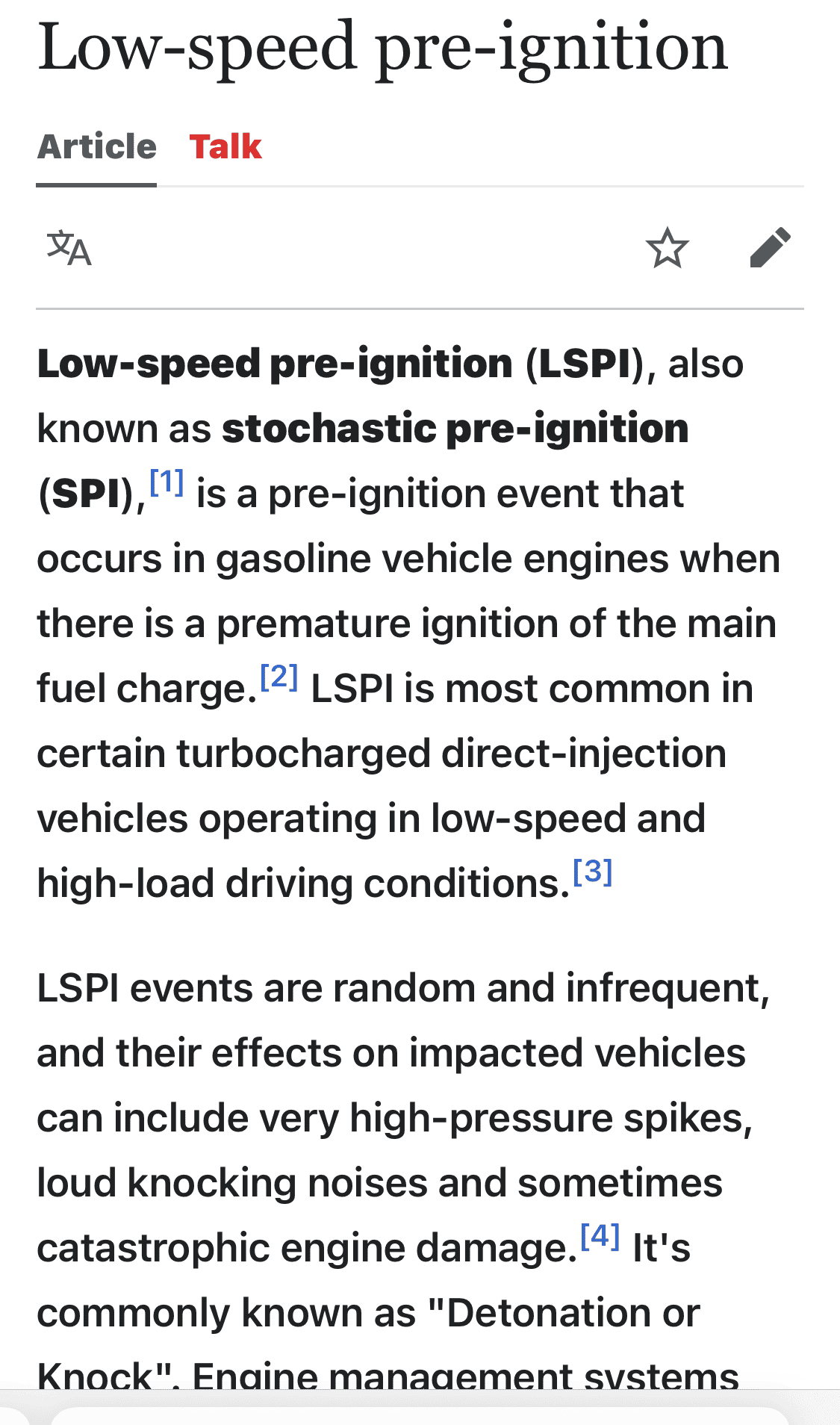- Thread starter
- #91
No, I don't see it that way. I can think of a bunch of different ways I'd have handled that if I had a genuine question on what was stated.No, I'm not trying to be pedantic. You put "rubber shreds in the wheel well" and "pre-ignition" in the same sentence, and then mentioned a destroyed clutch in a different sentence. That implies these are two different topics.
Why is everyone so quick to tell others to go away when faced with push back? If your opinion is worth a squat then it should stand up to a bit of questioning. This is how people learn new things.
The EcoBoost engine incorporates a knock (detonation) sensor which is used to set engine parameters. The ONLY way to get maximum power out of an EcoBoost engine is if the knock sensor fires, which by definition means the engine is operating under detonation.
Pre-ignition and detonation are two entirely different phenomena. One is all but required for proper operation of EcoBoost engines while the other can destroy one after a single event. It's not pedantry to suggest that if you use these terms you should be precise.
You are also incorrect about pre-ignition and I don't care to debate that here. You come off pretty smugly for someone who doesn't understand that detonation is a common term for pre-ignition...I dropped you a hint but you ignored it.
Anyhow, if you have something to add to my clarified point about the dealership experience and car issues, please do. It seems you get it now, but still persist. C'mon, man let's move on please.
Sponsored

